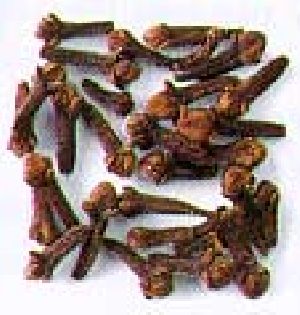
Dry Cloves
Get Price Quote
Clove, small, reddish-brown flower bud of the tropical evergreen tree Syzygium aromaticum of the family was important in the earliest spice trade and believed in indigenous to the Moluccas or Spice Islands (now Maluka), of Indonesia. The people of the Moluccas used to plant a clove tree to celebrate the birth of a child and would wear a necklace of cloves as a protection from evil spirit and illness. Strong in aroma and hot and pungent in taste, cloves are used to flavour many foods, particularly meats and bakery products; in Europe and the USA the spice is a characteristic flavouring in Christmas holiday fare, such as wassail and mincemeat. The name clove is believed to be derived from the French word clou meaning nail due to the appearance of this spice. As early as 200 BC, envoys from Java to the Han-dynasty court of China brought cloves that were customarily held in the mouth to perfume the breath during audiences with the emperor. During the late Middle ages, cloves were used in Europe to preserve, flavour, and garnish food. Clove cultivation was almost entirely confined to Indonesia, and in the early 17th century the Dutch eradicated cloves on all islands except Amboina and Ternate in order to create scarcity and sustain high prices. In the latter half of the 18th century the French smuggled cloves from the East Indies to Indian Ocean islands and the New World, breaking the Dutch monopoly. Cultivation The clove tree is an evergreen that grows to about 8 to 12 m in height. Its gland-dotted leaves are small, simple and opposite. The trees are usually propagated from seeds that are planted in shaded areas. Flowering begins about the fifth year; a tree may annually yield up to 75 pounds (34 kg) of dried buds. The buds, just before the flowers open, are hand-picked in late summer and again in winter and are then sun-dried. The island of Zanzibar, which is part of Tanzania, is the world's largest producer of cloves. Madagascar and Indonesia are smaller producers. Cloves vary in length from about 1/2 to 3/4 inch (13 to 19 mm). Cloves contain 14 to 20 percent essential oil, the principal component of which is the aromatic oil eugenol (70 - 90%). Cloves are strongly pungent owing to eugenol, which is extracted by distillation to yield oil of cloves. Three essential oils are available from this spice: clove bud oil, clove stem oil and clove leaf oil. Each has different chemical composition and flavour. Clove bud oil, the most expensive and the best quality product, contains eugenol (80 - 90%), eugenol acetate (15%) and beta caryophyllene (5 - 12%). Culinary use Cloves are ingredients in many classic spice mixtures. Whole cloves are frequently used to flavour cooking liquids for simmering fish, poultry, game and meat. They feature in classic sauces and are used in the bakery industry and the processed meats industry as a ground spice. Medicinal and other use The clove oil is used to prepare microscopic slides for viewing and is also a local anesthetic for toothaches. It is a strong antiseptic and preservative. It is used to treat flatulence, colic, indigestion and nausea. Eugenol is used in germicides, perfumes and mouthwashes, in the synthesis of vanillin, and as a sweetener or intensifier.

Dry Cloves
Get Price Quote
Best Deals from Dry Cloves